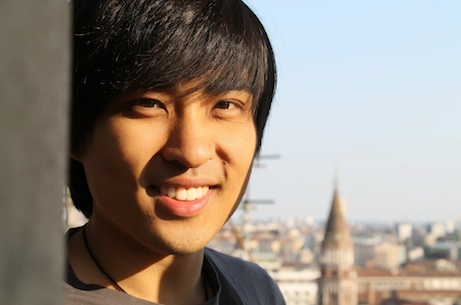
Jerry Lee talks about setting up The Cambridge Homeless Outreach Programme with fellow Gates Cambridge Scholars Musa Chunge and Mohammad Usman.
Jerry Lee [2013] wanted to get involved in community work with homeless people when he arrived in Cambridge. However, as an international student, he faced several barriers to volunteering.
Instead of giving up, he joined forces with two other Gates Cambridge Scholars, Musa Chunge [2013] and Mohammad Usman [2013], and they decided to start up their own organisation to help other students volunteer.
“I have been involved in community work since I was a boy,” says Jerry. “When I arrived in Cambridge, homelessness jumped out at me as an issue. I was looking for ways to get involved. Mohammad and Musa were also interested so we decided to set up an organisation to make it easier to plug students in to the different homeless groups in Cambridge.”
The Cambridge Homeless Outreach Programme provides training and advice for students who are interested in working with homeless people. Currently CHOP is working with different groups, including Student Community Action, which processes police checks for free. CHOP is also working with Cambridge Cyrenians, who do rehabilitation work with homeless people who have been addicted to alcohol. Projects they have worked on include building a pond, mentoring residents and rebuilding a shed.
CHOP is also looking to provide teachers of finance and computer skills for the organisation WinterComfort. In the winter, they worked with the Cambridge Churches Homeless Project, which provided church shelter at night when temperatures drop. CHOP now has around 50 members, around of third of whom are Gates Cambridge Scholars, and is looking to expand across the UK.
Jerry, who is doing an MPhil in Epidemiology, says he plans to keep working with the homeless when he returns to the US to do his medical training later this year. His interest in community work, though, extends back to his childhood.
Christian Fellowship
Jerry was born and raised in San Diego. His parents are from Taiwan, but moved back there for a couple of years when he was very young. When they returned to the US, they ran their own restaurant and Jerry helped out. His parents took him to the local church and he attended regularly. However, he says he “reclaimed” his faith when he went to high school and particularly to Stanford, where he became part of Chi Alpha Christian Fellowship. “It was the first time I had met rational people who strongly believed in the Bible. They were both academically brilliant and passionate about their faith. That shaped what I felt and motivated me,” he says.
He did a four-year Human Biology degree at Stanford, followed by a Masters in Biology. When he left, he worked for two and a half years doing research on vascular regeneration. Over this period, he published more than 10 papers in the field, including a co-first authorship in Nature Medicine. At the same time he was working part-time as a high school teacher, teaching biology to advanced students.
His faith then led him to become a missionary in Kansas City, Missouri, through the International House of Prayer. There, he was on the NightWatch from 10pm to 3pm and spent time in prayer and reading the Bible. Jerry also did volunteer work with homeless people, drug addicts, and gang members. “We would share meals with them, provide for them materially and listen and talk to them about their lives,” he says. “Our organisation worked with several heads of gangs and acted as a mediator.”
He applied to Cambridge to do Epidemiology because he felt he needed the skills of clinical science to better prepare him for his medical training and for his future research on developing stem cell treatments for patients with cardiovascular disease.
Since starting at Cambridge, Jerry, who is Communications Officer for the Gates Cambridge Scholars Council, has been pursuing his research interests in cardiovascular medicine. He says: “I hope to translate the insight gained from population trends into knowledge that would inform basic research. I also wish to learn how basic science can be better applied to improve population health.”












